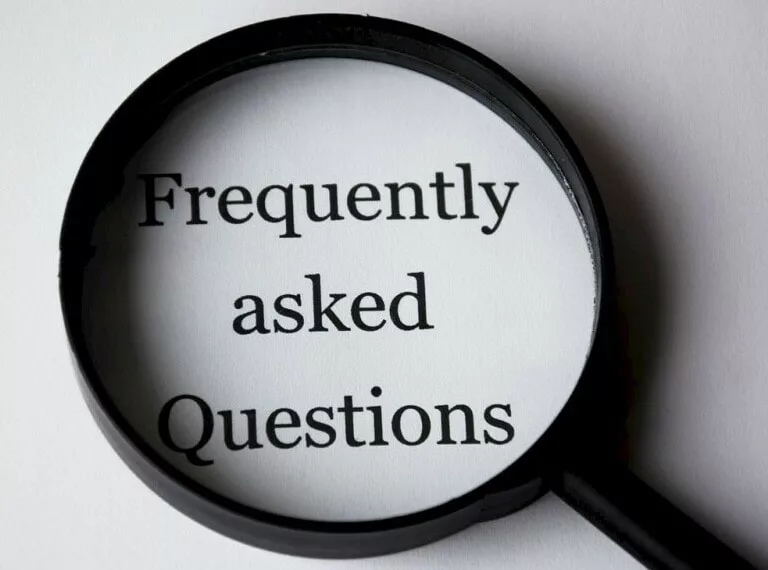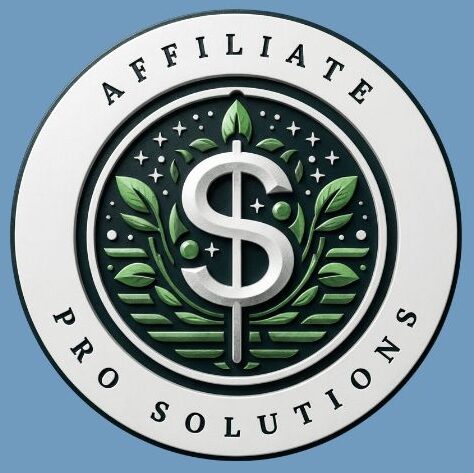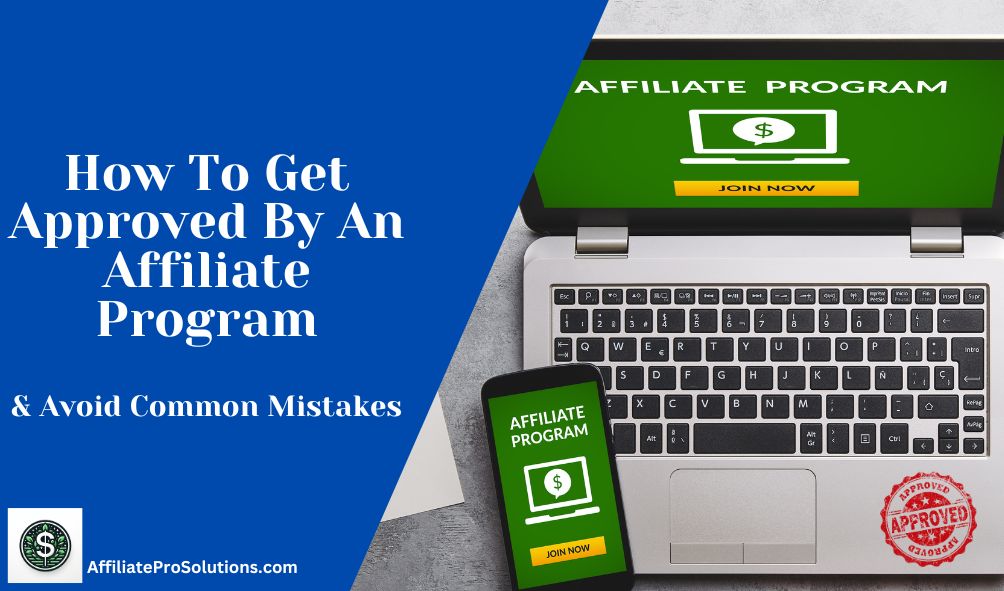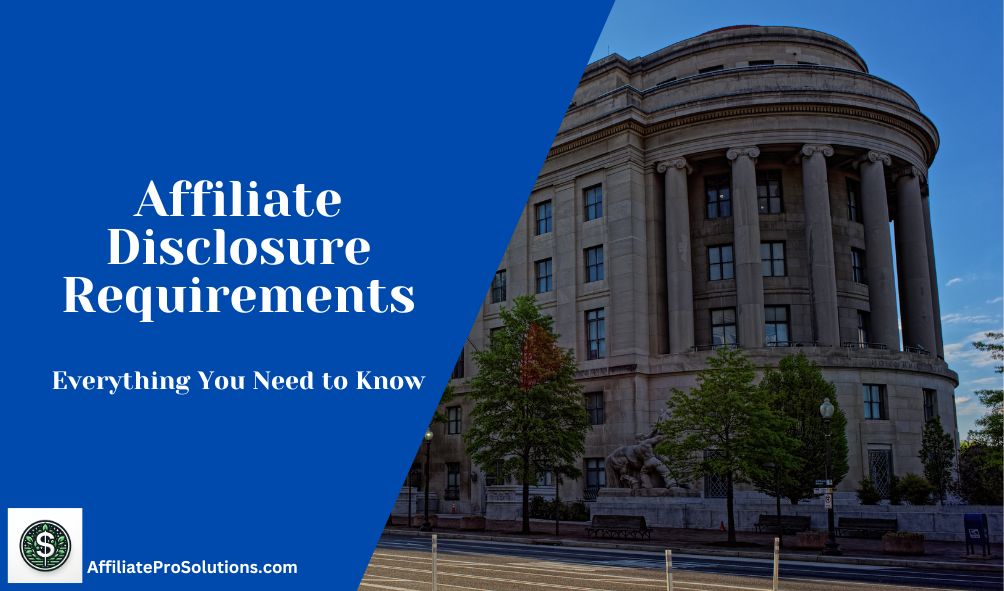Topic – Affiliate Marketing
Post Reading Time – 13 Minutes
Learning how to get approved by an affiliate program is a really important step if you’re looking to earn money through affiliate marketing. Getting accepted isn’t always as easy as it seems, and many programs have requirements in place. It’s not uncommon for beginners to face a few problems, but with the information I will give you here, you can improve your chances and start building a reliable source of income.
What It Takes to Get Approved by an Affiliate Program
To get approved by an affiliate program you need to have a professional looking website in place, relevant content, and you need to show you’re serious about promoting their products. Make sure you focus on creating value, follow their terms and conditions, and be honest about your audience. With a little preparation, getting accepted isn’t as hard as it might seem at first. See your Affiliate Program Approval Checklist here!
What You’ll Learn From This Post
- How to Build a Strong First Impression – Learn what makes a professional looking website stand out and why it’s important for affiliate program approval.
- Understanding Common Application Mistakes – Find out why applications get rejected and what steps you can take to avoid these problems.
- Tips for Creating a Good Pitch – Understand how to create a pitch that grabs attention and shows affiliate managers you’re serious about the opportunity.
- The Importance of Honesty and Value – Understand why being transparent about your audience and focusing on creating value are important for long term success.
- How Patience and Persistence Pay Off – See why staying patient, learning from feedback, and improving yourself will increase the chances of success over time.
Summarize This Content Using AI

Start Your Training
- Build Your Website & Earn Revenue
- Support, Tools & Training Included
- Complete with Business HUB
- Artificial Intelligence Writers
- My Personal Support
- No Risk Free Starter Account
- FREE BONUS AI CREDITS
TL;DR
How to get approved by an affiliate program
Getting approved by an affiliate program usually comes down to showing you have a real website, real content, and a clear reason people might click your links. This post talks through the common requirements and simple steps you can take so your application doesn’t get rejected right away. Taking a careful approach makes it a lot easier to get accepted and start earning.
A Quick Note Before We Begin
If you’re new to affiliate marketing, I want you to know that most affiliate programs don’t require you to have years of experience or complex marketing strategies under your belt.
As long as you have a functioning website with a few pages of quality content, including an About page, Privacy Policy, and relevant articles, you’ll likely get accepted.
This post covers both the basics and additional tips to help you stand out, but keep in mind that many programs are beginner friendly and they are happy to welcome new affiliates.
Affiliate programs are simple arrangements where businesses give individuals (affiliates) or other businesses a commission payment for bringing in new customers. It’s a cost effective way for companies to grow without needing to spend money on traditional advertising.
For you, this can be a rewarding and enjoyable way to earn an income.
For beginners, getting approved by an affiliate program can sometimes feel like a bit of a nightmare. Applications might be turned down if you don’t meet certain requirements, such as having a professional looking website, relevant niche content, or clear contact information.
This is not the end of the world, as most of the time you can apply again and it’s normal to face a few rejections when you’re finding your feet.
But by understanding what you need to do early on, you can prepare better and concentrate on what works.
Why Affiliate Programs Reject Applications and How To Avoid It
Understanding why affiliate applications can get rejected will help you improve your chances the next time round. Affiliate managers are very careful about who they approve because they need to protect their company’s interests.
So, even a small hint of risk can put your application onto the rejection pile.
One big issue is fraud.
Practices like generating fake leads or using cookie stuffing break the rules and they can harm the program’s reputation. For this reason, applications from regions with a history of fraudulent activity will often face more scrutiny when being checked.
It’ll probably no surprise for you to learn that some affiliates, including 38.1% in familiar programs like Amazon’s, have been flagged for crossing the line.
Legal problems are another concern.
Affiliates who promote products with misleading claims or illegal methods can drag the program into lawsuits. For example, the Federal Trade Commission (FTC) once took action against marketers who misused affiliates to deceptively promote slimming products.
This is a mistake no program ever wants to face again.
From a practical point of view, affiliate managers usually favor those who have a proven track record. They’re looking for affiliates who can deliver results with the minimal of guidance.
If you can show that you’re reliable and capable of meeting the expectations without needing too much help, it will make your application stand out a bit more.

What Makes a Successful Affiliate Applicant
For you to stand out as an affiliate, you need to treat this opportunity like a real business.
Many people just assume that adding links to a webpage is enough, but the truth is, a professional approach makes a massive difference. You need to understand your market and consistently deliver value.
This value is of course for your audience, but you need to provide value for the affiliate program as well. You need to show them you’re an ethical, honest and an engaged partner.
Is Experience a Big Advantage?
A lot of people ask me if already having experience is a big advantage. The answer to this is yes, if you’ve already driven sales for other programs, it’s worth letting them know during the application process, as it shows them you know what you’re doing.
For new people though, patience and taking the time to build up some experience can go a long way. Sharing examples of times when you’ve successfully generated business will help to prove your reliability and your skills.
You’ll be happy to learn, though, that most affiliate marketing programs out there are ready to welcome newcomers. You just need to make sure you have a few pages of great content on your site and maybe a little traffic.
I personally have never been rejected for an affiliate program, even when I was first starting out!
You just need to be honest and transparent. Ethical affiliates know how to promote products or services without crossing into false claims or misleading tactics. This kind of integrity reassures affiliate managers that you’re someone they can trust with their program’s reputation.
Managers appreciate affiliates who show that they’re serious about long term success. Programs are more likely to approve applicants who demonstrate a clear plan for their efforts over time.
If you can show that you’re committed to steady growth rather than short term gains, you’ll be okay.

How To Increase Your Chances of Affiliate Program Approval
Having a high quality website is one of the most important steps to getting yourself approved. A professional looking site with a top level domain like a .com can make quite a strong first impression.
Make sure your site’s easy to navigate around and has fresh, relevant content that appeals to the people you’re targeting.
Also be sure to have an About page in place, clear Contact information, a Privacy Policy, and a Terms & Conditions page to show that you’re serious and professional.
Only apply to programs that fit your content’s niche. Choosing programs that don’t have anything to do with your site’s focus can lead you to facing rejections and might even hurt your credibility.
Affiliates who understand their audience and pick programs that match their interests are far more likely to be successful.
Additional Affiliate Marketing Info & Resources
Always take the time to read the terms of service before applying to programs. Every program has its own rules, and some may restrict certain promotion methods like PPC advertising or have strict guidelines for link usage.
Knowing these rules in advance will help you to avoid mistakes and prepare a stronger application.
It is important that you always provide accurate and up to date information.
Use your real details and be honest about your audience size and engagement. Trying to bypass restrictions with fake information or a VPN can backfire and ruin your chances. Even if your traffic is small, showing authenticity is more valuable than exaggerating things.
Being honest from the start and playing by the rules will give you a much better chance of getting approved.
Building a Strong Promotion Strategy for Affiliate Approval
When outlining your promotion strategy, try to be clear and specific about how you plan to market the products or services. It is important to show affiliate managers that you know how to drive traffic and generate sales which meet with their expectations of you.
Focus on how you’ll reach out to the right audience. This could include content marketing, SEO, or just using social media platforms to connect with your potential customers.
Showing that you can engage with your audience and match their interests makes it easier for managers to see your value.
Your strategy should also show an understanding of affiliate tools and different marketing techniques. If you’re good with using data analytics, email campaigns, or pay-per-click ads, highlight these skills and resources you have to support your plan.
If you’ve had success in the past, back it up with some facts.
Share some specific numbers, like how you increased traffic, boosted engagement, or achieved strong conversion rates. These details will prove your capability and give affiliate managers more confidence in your application.
Presenting your promotion plan with confidence shows managers that you’re prepared, capable, and serious about creating a successful partnership.

Networking and Following Up to Get Approved by an Affiliate Program
Building your connections can go a really long way in affiliate marketing.
A recommendation or a referral from someone else in the industry, like another affiliate or a program manager for example, can add a lot of credibility to your application and improve your chances of getting approved.
It is a good idea to consider joining online forums, affiliate groups, or attending industry conferences. These are great places to learn, share experiences, and connect with other people who might be able to help you down the line.
Building relationships can sometimes lead to valuable introductions or even endorsements.
Once you’ve submitted your application, following up with affiliate managers can help you stand out a little more.
A short, professional message introducing yourself and expressing your interest shows some initiative without being too pushy. Just keep it brief and polite as nobody appreciates constant emails or the demands for updates.
If you get rejected, it doesn’t mean it’s the end of your affiliate marketing hopes. In this case it’s helpful to reach out and ask for feedback.
A polite request can give you a lot of information into why your application was declined, and you’ll know exactly what to improve on the next time.
In some cases, this simple step might even open the door to reapplying in the future.
Your Step by Step Checklist for Affiliate Program Approval

Please reference this checklist to have the best chance of being accepted into your affiliate programs.
| Build a Professional Website | Make sure your site has relevant, high quality content and proper pages in place like the About, Privacy Policy, and Contact. |
| Choose the Right Programs | Select programs that match your niche and suit your audience. |
| Prepare Your Pitch | Write a personalized and professional pitch specific to the affiliate program. |
| Read the Terms of Service | Understand the program’s rules and regulations to avoid any mistakes. |
| Follow Up | Reach out to the affiliate managers if you need to and ask for feedback if you get rejected. |

Frequently Asked Questions – FAQs
Most affiliate programs will want to see a professional looking website with quality content on it. Make sure you have the About page, Privacy Policy, and Contact information. Having niche relevant content and showing you’re serious about promoting their products also goes a long way.
Yes, it’s possible to join some programs without a website, but you’ll need an active presence on platforms like YouTube, Instagram, or a strong email list. That said, having your own website gives you more options and can make the approval process a lot easier.
Applications often get turned down because the website doesn’t look professional, lacks relevant content, or doesn’t match the program’s niche. It could also be something as simple as missing details in your application. The good thing is, you can fix these issues and apply again.
Not at all. Many programs are happy to work with affiliates who have smaller audiences, as long as the content is high quality and fits their niche. It’s more about engagement and relevance than traffic numbers, so focus on creating value for your audience.
This really depends on the program. Some can approve you almost straight away, while others might take a few days or weeks to review your application. While you wait, make sure your site looks good and has the kind of content they’re looking for.

Why Patience Is Important to Getting Approved by an Affiliate Program
Patience is an important part of getting started with affiliate marketing.
Beginning with entry level programs can be a good way to get some experience and build up your credibility. These beginner friendly platforms are great for showing your competence when you’re ready to apply to the larger, more exclusive programs.
Feedback is always valuable, even when it’s not what you sometimes want to hear. But instead of focusing on what went wrong, use the feedback you get as an opportunity to improve.
Making small changes based on constructive criticism can be exactly what you need to get approved next time.
Timing also matters when communicating with affiliate managers. If you start following up too soon or too often it can come across as impatient.
Give them the time they need to review applications, and remember that waiting a little bit doesn’t always mean you’re getting a rejection. It’s just part of the process you have to go through.
My Experience with Affiliate Program Approval
I’ve been lucky never to face a rejection from an affiliate program, but I know others who’ve had a harder time. A friend of mine, for example, was rejected because their website didn’t have the required pages like a Privacy Policy or About page. Once they added those on and improved their overall content, they were approved on their second try.
In my opinion, being honest, having a professional website, and showing you’re serious about promoting their products goes a long way for your application.
With the right preparation, there’s no reason you can’t get approved.
Affiliates who stay patient and focus on learning and improving consistently find success over time. Having this mindset will help you get better and establish your reputation as a reliable and professional affiliate.
Thank you and please leave your thoughts and comments below.
Chris
Wealthy Affiliate
This is where my journey into the online world began, and it’s still the community I use for learning, tools, and support while working on my own projects.

About Chris Towers – Follow Me

My name is Chris Towers, and I run Affiliate Pro Solutions. I work with websites, content, and affiliate projects, and this website is where I share what I’ve learned from doing that work.
Most of what I write about comes from researching hosting companies, tools, and platforms that people use when building websites or trying to earn online. I look at how things are set up, what’s included, and where people often get caught out later.
I’m not connected to the companies I review beyond standard affiliate partnerships. This site does include affiliate links, but the aim here is to explain how the services work rather than push anyone into a decision.
You’ll find me on
Related
- How Do I Write My First Affiliate Product Review? Practical Tips You Can Use Right Away
- How To Build Trust As An Affiliate So Readers Believe Your Advice
- What Are The 5 Cs Of Content Creation? Make Yours Stand Out
- Effective Ways To Promote Affiliate Products That Work
- How To Get Approved By An Affiliate Program And Avoid Mistakes
- Affiliate Disclosure Requirements – What You Must Know
Just to be open with you, this page includes affiliate links. If you click on one of these links and make a purchase, I earn a small commission. There is no extra cost to you at all. This simply helps support the content I share here. Thank you for your support, it really is appreciated.







Getting accepted into an affiliate program can be difficult, certainly when you’re just starting out.
I liked the part here about making your website look professional and also making your content relevant with what programs are looking for.
Has anyone here tried contacting affiliate managers directly with a personal pitch? Did it make a difference if they did?
Also, what are some of the mistakes you’ve learned to avoid when applying?
I think sharing these kinds of experiences could really help me and anyone who’s new to this.
Hi Slavisa, and thanks!
Getting accepted can sometimes be a challenge yes, especially when you’re just starting.
Reaching out to affiliate managers with a personal pitch can make a difference. I’ve found that it helps to show them you know what you’re talking about. Also, mentioning how their program meets with your audience and sharing a clear plan for promoting their products can really help your application!
As for mistakes I know of, one big one I’ve seen is applying to programs that have nothing at all to do with your niche. It’s a fast way to get rejected.
Another is not having the necessary pages like an About page or Privacy Policy on your site. Those small details matter more than you’d think.
Does this help you? If you ever need something more, let me know!
Thanks.
Chris
I really enjoyed this Chris, thank you.
Your information on creating a professional website, avoiding common mistakes, and understanding program requirements were very helpful.
I also liked the checklist and I think it’s a great thing to have to keep things simple.
Your words on honesty and adding value for your audience were also interesting, and I think it’s an important reminder for beginners and the more experienced marketers.
This article is definitely worth a read for anyone interested in affiliate marketing.
Thanks Chris!
Hi Andrejs and thanks for reading.
The checklist is definitely something I wanted to include to make the process as straightforward as possible, so it’s good to hear you liked it. I’ve actually been adding a checklist on many of my posts throughout the site as I find it good to offer people a quick reference.
Yes, honesty and adding value are 2 of the most important parts of affiliate marketing, and it’s something I always try to remind beginners and the more experienced marketers of. It’s the best way to build trust and keep things moving in the right direction.
I’m happy the post was worth your time, and if you have any questions or need further help, just send me a message!
Thanks.
Chris
Getting approved by an affiliate program is an important step, but I know it’s not always easy, especially for beginners. Having a professional website with helpful content and the important pages like an About page, Privacy Policy, and Terms & Conditions seems to make a difference for the application.
Does anyone here have any tips on creating a good pitch though? I’d like to know what’s worked for others. And if you’ve ever been rejected, how did you go about asking for feedback?
I know getting approved can feel like a big hurdle, especially when just starting out.
Having a professional website and those all important pages like an About page and Privacy Policy will make a difference as it shows you’re serious and ready to work with the program.
As for a good pitch, I think it helps to be specific.
Explain how their program fits your audience and what value you can bring to their products. Affiliate managers want to know that you’ve done your research and that you have a clear plan in mind.
If you’ve been rejected, don’t be afraid to ask for feedback. A polite email can help you understand what to improve on for the next time.
Most programs are open to giving advice, and it shows that you’re serious about doing things the right way.
Let me know if you have any other questions.
Thanks.
Chris